Microsoft Surface Pro 2 Review
by Anand Lal Shimpi on October 21, 2013 12:01 AM EST- Posted in
- Tablets
- Microsoft
- Mobile
- Surface
- Surface Pro 2
CPU Performance
While multitasking on Surface 2 can struggle, the same really can’t be said for Surface Pro 2. The tablet is effectively a Haswell Ultrabook, capable of delivering the exact same performance as a 2013 MacBook Air – but in the form factor of a thick tablet. The performance of Intel’s Core i5-4200U is a fairly known quantity at this point, but to put Surface Pro 2’s tablet performance in perspective here are some comparisons to the best of the best in the ARM tablet space.
I ran tests using both Chrome and IE11, the latter is really only optimized for SunSpider and horribly unoptimized for everything else. In general you're multiple times better performance than what you can get from a quad-core Cortex A15 based device. If we look at Kraken, Surface Pro 2 running IE11 completes the test in 1/4 the time as Surface 2 running the same browser.
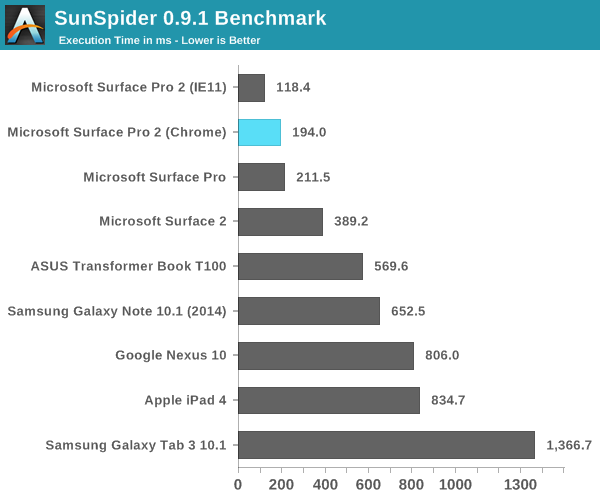
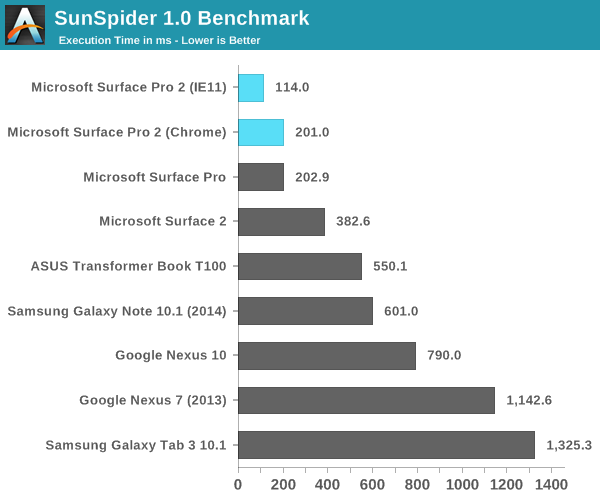
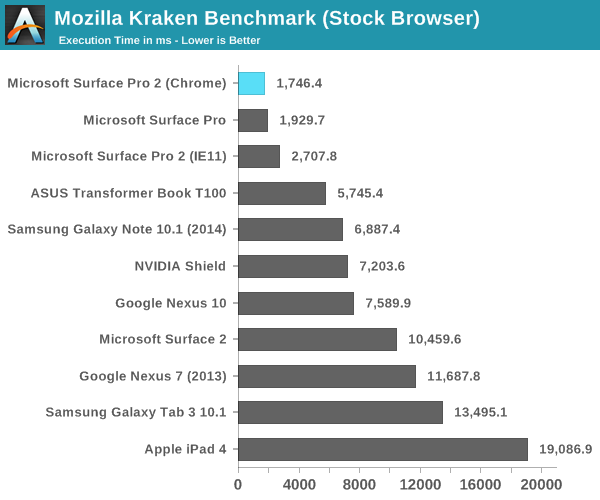
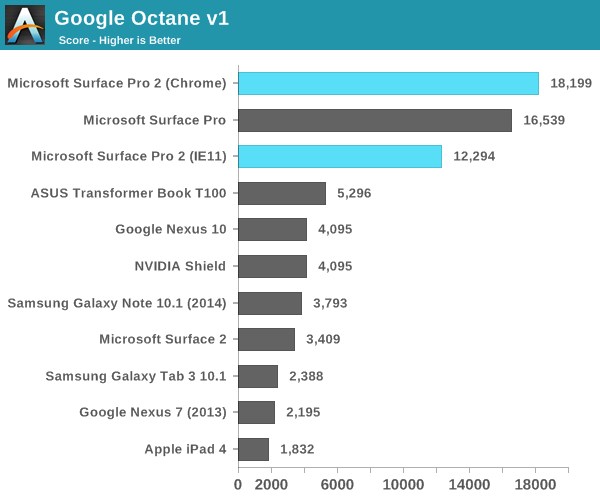
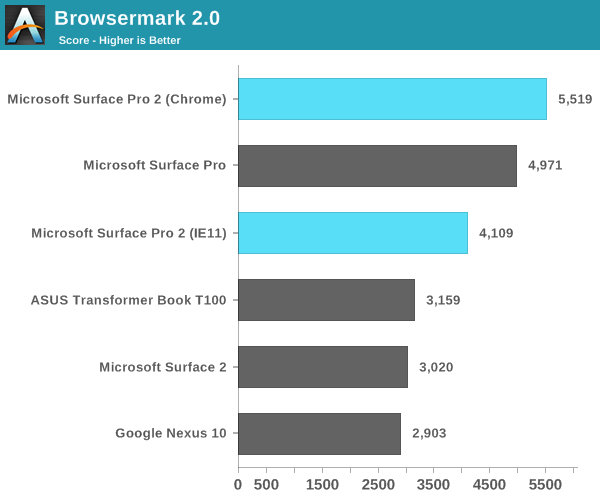
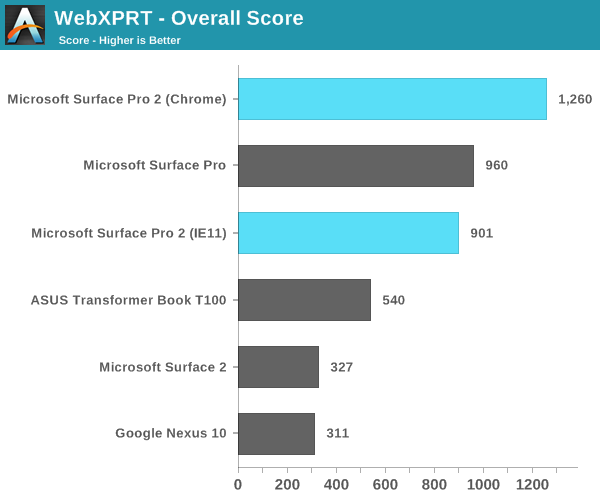
GPU Performance
Intel’s HD 4400 is good enough for light gaming and is a huge step above what you can find in a traditional ARM based tablet. Microsoft only gave us a few days to review both devices so I didn’t have a ton of time to re-characterize the performance of Intel’s HD 4400, but I’ve done that elsewhere already.
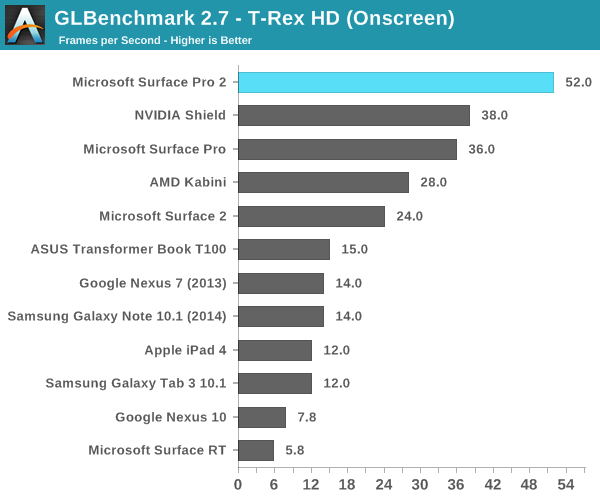
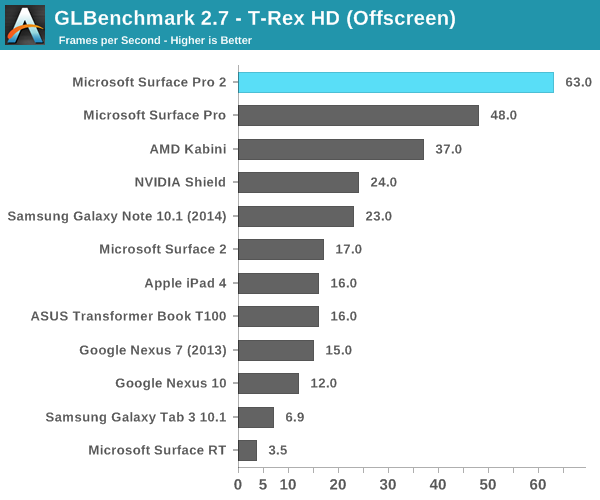
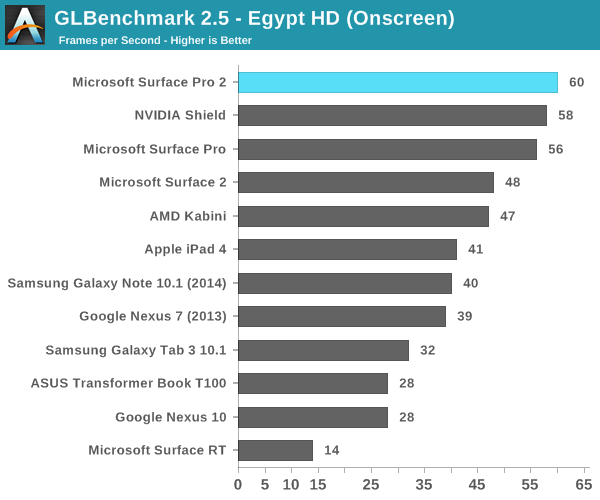
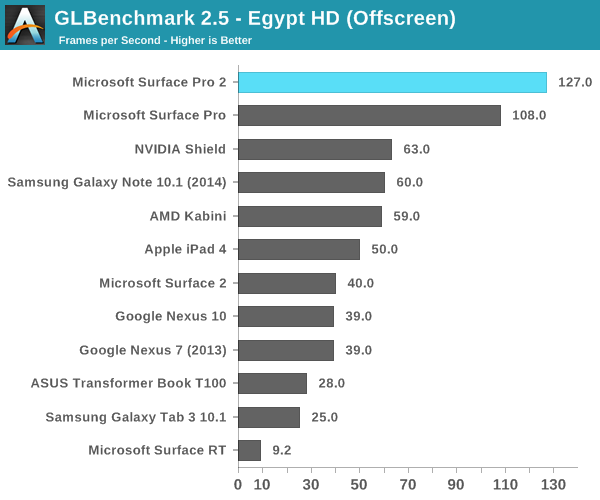
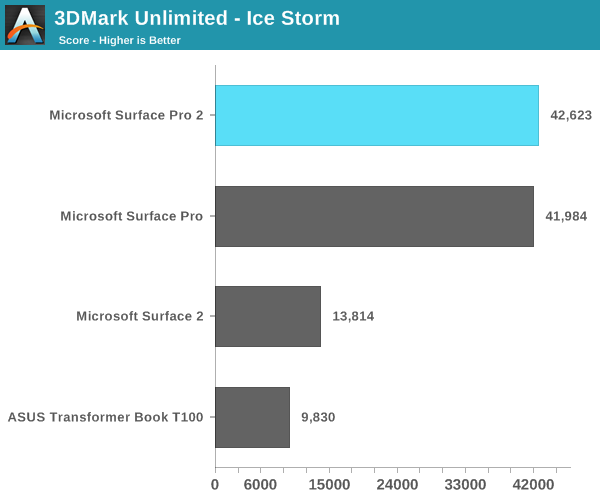
Storage Performance
My review sample appears to have a SK Hynix based SSD. I ran it through the same modified IO tests I did on the ASUS T100:
Our Android IO tests rely on Androbench with a relatively limited LBA span. I increased the difficulty of the test a bit under Windows 8.1 but still kept it reasonable since we are dealing with eMMC solutions. I’m testing across a 1GB LBA span and testing for a period of 1 minute, which is an ok balance between difficulty of workload and sensitivity to the fact that we’re evaluating low-class SSDs here.
Surface Pro 2 is a completely different league of IO performance. The number to pay attention here is the tremendous increase in random write performance compared to the eMMC solutions we’ve tested. I suspect the gap increases if we were to look at worst case sustained random write performance. Killer sequential performance definitely helps Surface Pro 2 feel quick.
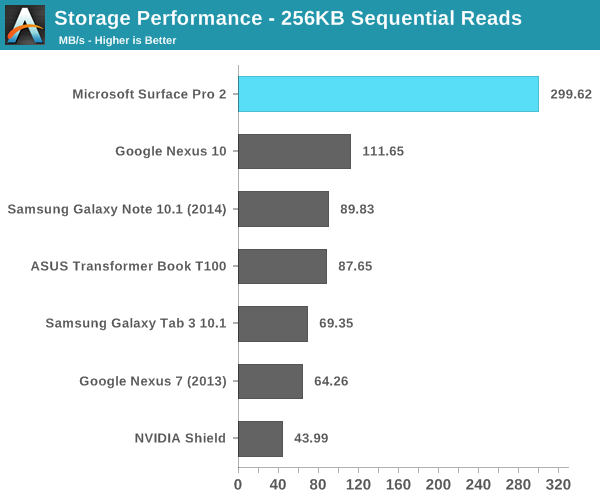
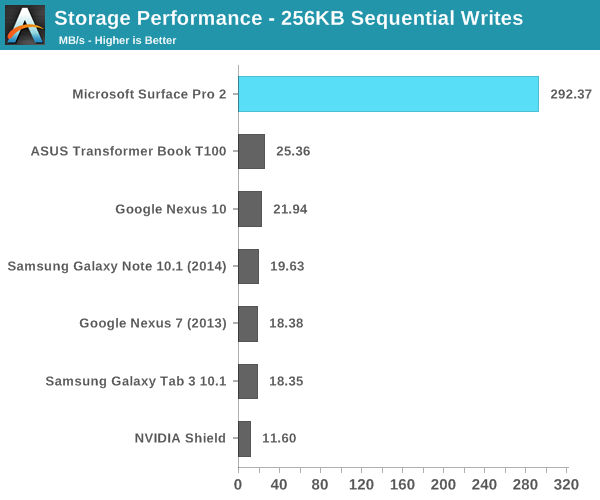
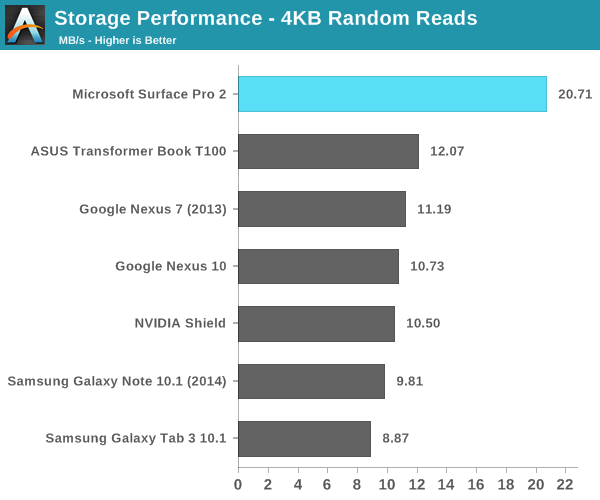
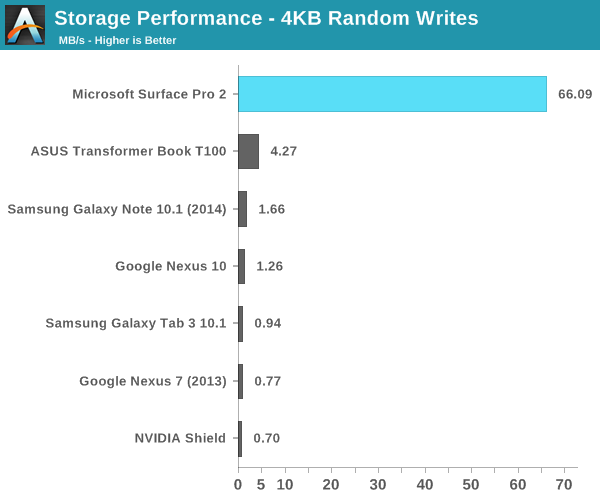










277 Comments
View All Comments
Kevin G - Monday, October 21, 2013 - link
The Penny Arcade review of the original Surface Pro was one of its best reviews. The review was in the context of an artist but oh did it really serve that niche well. Based upon that review, I recommended to an artist to read and consider the Surface Pro. Didn't wind up getting one as the Haswell based one would be worth the wait in terms of battery life and/or performance.I will add one thing that would be ideal for the Surface (2) Pro: a tethered monitor mode so that it could emulate the functionality of a Wacom Cintiq display. (Basically the Surface Pro becomes an external touch screen for a different host computer.) That really would be a killer feature, albeit niche.
jlaforge - Monday, October 21, 2013 - link
"I’m actually curious as to why Surface Pro 2’s Haswell implementation seems only good for around 6 – 7 hours on a single charge, while other devices we’ve seen manage to deliver substantially better. I have heard that Microsoft didn’t work all that closely with Intel on Surface Pro 2, which might explain some of this gap."The battery life is disappointing, especially considering the testing you did on the MacBook Air 2013 and i5 4250U (http://www.anandtech.com/show/7117/haswell-ult-inv... The Surface Pro 2 has a higher resolution display and active stylus, but I still thought 8 hours of browsing would at least be possible.
OneOfTheseDays - Monday, October 21, 2013 - link
Anand's results do not jive with what other sites are reporting.I'm seeing 7-8 hours with regular usage is the norm.
doobydoo - Monday, October 21, 2013 - link
Er, yes they do. They 'jive' perfectly. The Verge states even less battery life. Engadget only do a video playing test which they have to redo.Anandtech is the only one who perform reliable, consistent benchmarks which you should pay attention to.
What you personally see obviously depends on your own usage pattern. The whole point of benchmarks is that they remove that as a factor. They tell you how tablets compare with the same use.
Klimax - Monday, October 21, 2013 - link
And then you realize that not even that will tell much of story, until power options are written down. (If you can...)Kevin G - Monday, October 21, 2013 - link
Do the other reviews have the brightness calibrated at 200 nits? I see that as a differing factor between battery tests.teiglin - Monday, October 21, 2013 - link
The Vaio Pro 13 managed over 8 hours in the light desktop battery life test with a larger screen, the same silicon, and a smaller battery (37Whr vs. 42Whr) and it's my understanding that the tablet web browsing test is even easier than the desktop light test. What browser do the desktop tests use? Also, I know time was an issue, but desktop tests would be nice for Surface Pro 2, as I think the usage paradigm for this device is quite a bit more strenuous than iPad/Android tablet usage.ananduser - Monday, October 21, 2013 - link
I read that Chrome has a bug on Windows that prevents the CPU from going idle. I recall Anand's latest PC battery tests having idle times built it so that a faster unit does not get penalized for doing more work. Maybe Anand used Chrome; I know for a fact that Jarred used IE10/11 for the Vaio.kyuu - Monday, October 21, 2013 - link
That's interesting. If true and Anand used Chrome for the battery test, it would definitely skew the results. Hopefully Anand looks into that.kyuu - Monday, October 21, 2013 - link
Nevermind, further down Anand stated that he used IE11 for all the battery tests.